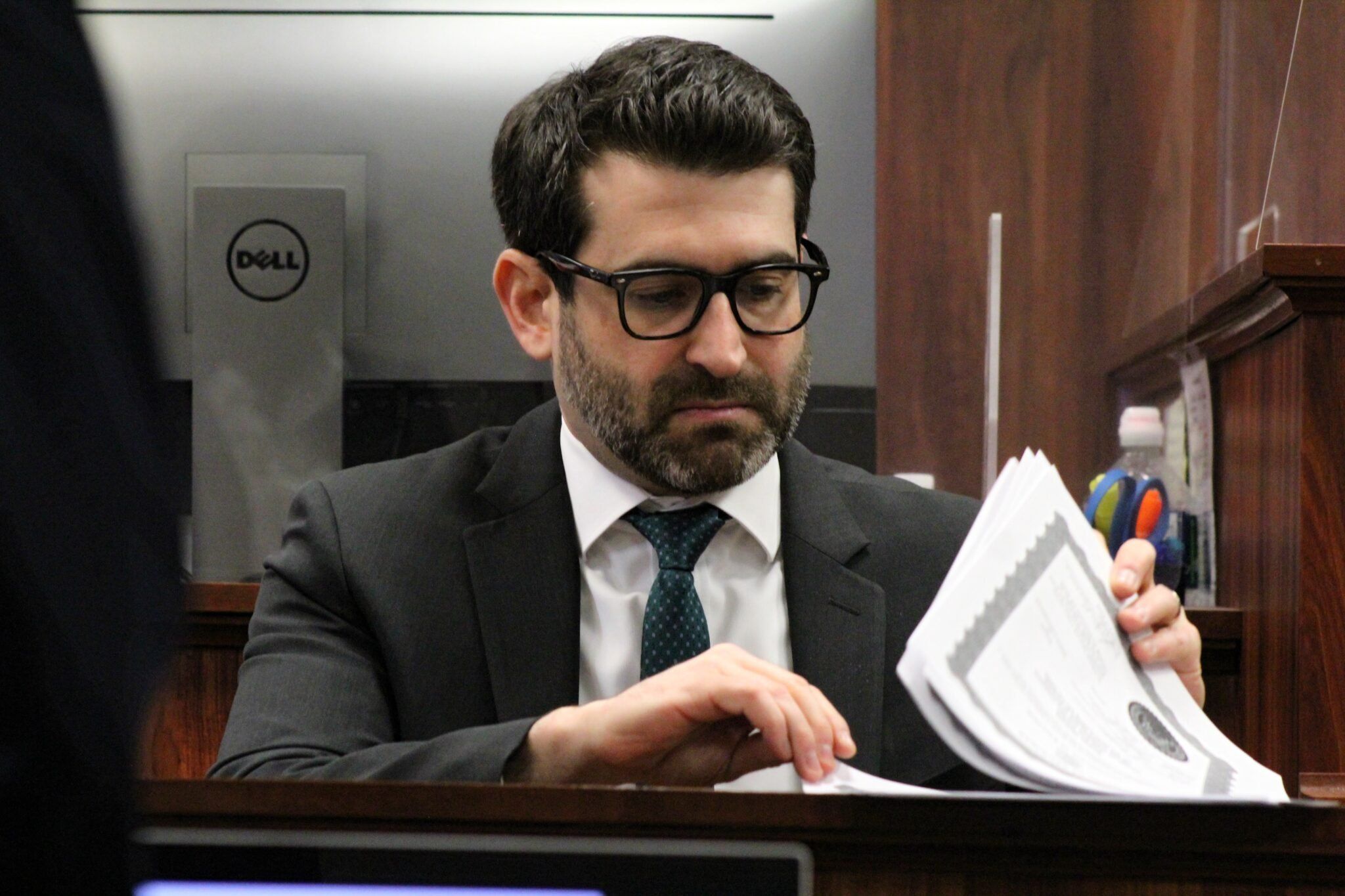Six members of the 15-person group of Michigan Republicans facing multiple felony charges for submitting false electoral votes for former President Donald Trump in the 2020 election appeared in court Wednesday, as witnesses from law enforcement and the election certification process were called to speak during a preliminary hearing in a Lansing court.
The Michigan Attorney General’s Office, which is heading the criminal prosecution of 15 individuals, asserts that the group willfully signed several documents falsely claiming they were the state’s rightful electors in 2020, submitting false electoral votes to Washington, D.C.
President Joe Biden won Michigan by more than 154,000 votes in 2020 and thus won all 16 of the state’s 16 electoral votes.
Six of the 15 individuals — Michigan GOP National Committeewoman Kathleen Berden, Amy Faccihinello, John Haggard, Mari-Ann Henry, Michele Lundgren and former Michigan GOP Co-chair Meshawn Maddock — sat in court and listened to testimony from a member of the Michigan State Police talking about individuals not charged in the case trying to get into the capitol while the election was being certified and the state’s director of elections talking about how the election certification process works.
Previously, 16 individuals were charged, all with eight felonies apiece, some of which carried up to 14 years in prison. But one man, James Renner of Lansing, had his criminal charges dropped as a part of a cooperation agreement with the prosecution of the other members of the group.
A handful of witnesses spoke, including Michigan Director of Elections Jonathan Brater, who testified about the processes of certifying elections. He also recounted to the court that on Jan. 8, 2021, two months after the presidential election that Biden and Vice President Kamala Harris won, he received an email from the national archives that confused him.
“It was unusual to be informed that a separate set of electors had been sent to the National Archives that are not the ones that the state of Michigan had submitted,” Brater said
The Michigan Attorney General’s Office says the criminal charges, which include multiple counts of forgery stem from the group’s decision to meet at the Michigan Republican Party headquarters in Lansing on Dec. 14, 2020, and sign several documents claiming to be the state’s rightful electors, and submit the state’s electoral votes for Trump.
They were not the rightful electors.
The host of defense attorneys have made arguments throughout the case on behalf of their clients, including calling attention to comments made by Michigan Attorney General Dana Nessel at a virtual event in December where she called the defendants “brainwashed.”
“These are people who have been brainwashed,” Nessel said. “They legit believe that … somebody can’t even plead guilty if they wanted to because they can’t admit that what they did violated the law because they still think they’re right.
Another defendant, Timothy King of Ypsilanti, was granted a request to be evaluated to determine competency to proceed in the criminal case with his attorney, Michael Vincent telling the judge in October that it’s been impossible for King to help in his defense.
Other attorneys have said their clients participated in “political protest” by submitting the documents, an argument fellow defendant Clifford Frost’s attorney made in an October hearing.
Judge says there’s not sufficient evidence to dismiss charges against 2 Michigan fake electors
During Wednesday’s proceedings, Brater was prompted to look at the set of documents that are the crux of the case, with attorney Mary Chartier, representing John Haggard, pointing out that the page with all the defendants’ signatures doesn’t bear all the details of the contents of the document from the page before it. Chartier argued the court doesn’t know if any of the defendants read what they were signing.
“You have no knowledge of what Mr. Haggard did or did not believe when he signed that document in 2020, do you?” Chartier asked Brater.
He confirmed the rest of Chartier’s line of questioning to this point: “You have no idea what Mr. Haggard may have been told before signing that document?” and “You have no idea of what Mr. Haggard thought would happen to that document?”
The preliminary hearings for these defendants will continue Thursday, with the prosecution intending on calling at least six more witnesses.
Michigan Advance is part of States Newsroom, a network of news bureaus supported by grants and a coalition of donors as a 501c(3) public charity. Michigan Advance maintains editorial independence. Contact Editor Susan Demas for questions: info@michiganadvance.com. Follow Michigan Advance on Facebook and Twitter.
